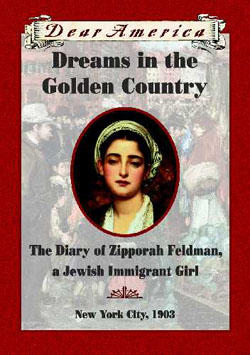 |
||||
The United States has been called a nation of immigrants because since 1776, it has taken in more than 55 million people from nearly every corner of the world.
Beginning in about 1890, a great wave of immigration began, mainly from southern and eastern Europe. The new immigrants included Italians, Slavs, Greeks, and eastern European Jews. For the Jews, religious oppression as well as economic reasons caused families to leave their homes and the worlds they had known to set out for America.
Many of the new immigrants entered the country at New York City. Many Jews decided to stay in Manhattan, on the Lower East Side — a neighborhood of approximately 350,000 Jews.
Between 1892 and 1954 they were received at a U.S. government facility on Ellis Island in New York Harbor. Other eastern coastal cities, including Boston, were also first homes of immigrants. Some of the immigrants moved inland, swelling the populations of cities such as Pittsburgh and Chicago. Others were more adventurous and crossed the country, settling at places along the way or on the west coast. To go on an interactive tour of Ellis Island and learn more about immigration, click here.
Most immigrant groups quickly discovered how difficult life in their
new homeland could be. New immigrants were packed into small, dark
tenements where disease was a constant threat. They worked hard in
sweatshops, a shop or factory where people worked long hours
for poor pay, because their limited English meant they had limited
jobs available. They had to learn a new language and adjust to new
customs while struggling to keep their own traditions. Jewish immigrants
did adopt many aspects of American culture but also established theaters
and newspapers in their native language of Yiddish. New Americans
learned how to make their new homes more comfortable and how to establish
a better life.
In Russia, Zipporah Feldman and her family had been told America was the “Golden Country.” When she arrived at her new home, Zipporah was rudely awakened by the true conditions of most new immigrants. Read her reaction from her diary:
|
||||

